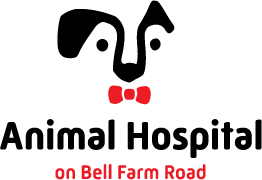Library
-
Primary vaccination is essential to prevent the once common deadly diseases in puppies. However, recent research indicates that not all vaccines require yearly boosters. There is no evidence that annual booster vaccination is anything but beneficial to most dogs. Published research has shown conclusively that abstaining from some boosters can put your dog at risk.
-
Pet owners can greatly improve the quality of life for their cats with osteoarthritis through nutrition. Key steps to managing inflammation and joint pain include managing daily Calorie intake and increasing fat metabolism through controlled physical rehabilitation.
-
Pet owners can greatly improve the quality of life for their dogs with osteoarthritis through nutrition. Key steps to managing inflammation and joint pain include managing daily calorie intake and increasing fat metabolism through controlled physical rehabilitation.
-
Osteoarthritis is a common condition affecting bones and joints in many older dogs. It is a disease of management and cannot be cured. Medications, physical therapy, nutrition, and surgery may all be considered to help alleviate the pain. Dogs can live a normal life with a tailored care plan.
-
Axolotls are purely aquatic amphibians. They retain external gills and a paddle-like tail for their entire life. This handout outlines habitat and food requirements, as well as potential health concerns for your pet axolotl.
-
If they are well looked after, including proper diet and husbandry, bearded dragons are reasonably hardy animals. Common health conditions of pet bearded dragons include CANV, atadenovirus, metabolic bone disease, parasites, infectious stomatitis (mouth rot), and respiratory infections. Any change from normal is cause for concern and should be immediately evaluated by your veterinarian.
-
Bearded dragons have specific environmental requirements to thrive as our pets. This handout outlines their housing needs, including enclosure size, appropriate bedding, preferred accessories, and necessary lighting and temperature control.
-
Bearded dragons are well-known small to medium-sized lizards. They are currently considered one of the most popular pet lizards for all ages. Owners often refer to their pets as 'beardies'. This handout explains how they differ from other pets and provides tips for selecting a healthy beardie to keep as your pet.
-
Bearded dragons are susceptible to several health problems; understanding them will help you prevent them from occurring in your pet and know when to seek veterinary attention. Problems described in this handout include salmonellosis, avascular necrosis, tail rot, abscesses, and dystocia (egg binging).
-
The bearded dragon is a popular small- to medium-sized pet lizard. Bearded dragons are omnivorous, meaning they eat both plant and animal-based foods, including insects. They should consume a diet that is 50% insects and 50% green leafy vegetables. This handout is a general guide for feeding pet bearded dragons a nutritious and balanced diet.

